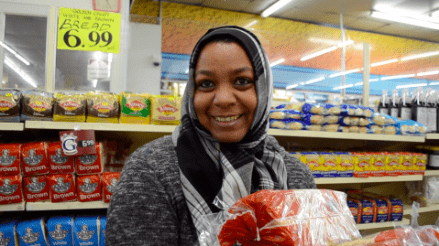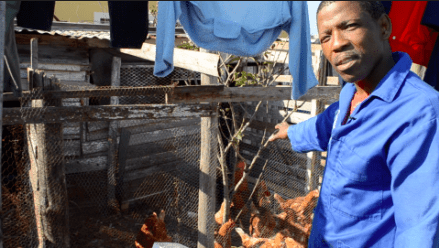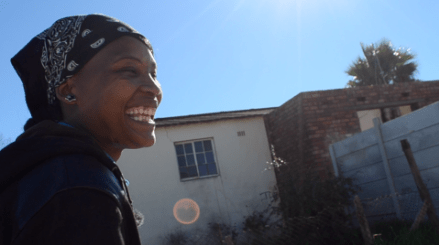Maria Polzin
Community Systems Strengthening for Health (CSS)
Cape Town, South Africa
I went to South Africa with the goal of building an oral history archive, consisting of long-form interviews with community members and community stakeholders that are involved in CSS’s networks for the realization of the right to food. These interviews would be beneficial to CSS for improving their training materials and policy recommendations, to the University of Cape Town (UCT) for their research on food security, and they would, hopefully, act as a tool for empowerment as community members claim autonomy over their narratives through storytelling.
However, when I arrived in Cape Town, there was a new project manager for CSS, Lucille. Lucille has a background in grassroots activism and community organizing, and she was tired of researchers entering communities, asking their own questions, and leaving to write papers that the community members would never see. While the oral history archive was a bit more accessible because the end product would be solely their own spoken languages, we were still stuck on the question: what could these activists do with hours of audio files?
Lucille and I bounced ideas back and forth for about a week until we finally landed on the medium of film. With film, community members could have more control over their representation by choosing what locations they want to feature, such as their homes, churches, and community gardens, and they could potentially use the film to obtain funding for their projects in the future. We were working with community members that had undergone training through CSS on food security, food gardening, and nutrition, so many of them utilized the training to start or strengthen their own child feeding initiatives, nutritional education programs, and home and community gardens. Furthermore, the film could still serve as a tool for CSS and researchers to better understand through first-person narratives how to improve training programs and access to food.
These conversations with Lucille brought to light an important topic that would be a running theme throughout the summer and, I expect, in all of my future work: knowledge is a human right, making knowledge dissemination a human rights issues. How can we as researchers ensure that our work is both beneficial and accessible to the community members involved? How can we as researchers, often holding privilege in spaces like universities or formal sectors, center community members’ expertise in a format that still makes sense to them?
These questions are particularly important when working on food rights because sustainable agriculture best emerges through the co-creation of knowledge: combining indigenous practices with an understanding of the land and the communities’ needs. There are many ways to approach the human right to knowledge, but it always involves listening. In the weeks that followed, I would meet with community members, before beginning any filming, to build relationships and really listen to learn what stories they wanted to tell.
Below are some stills from the documentary.


